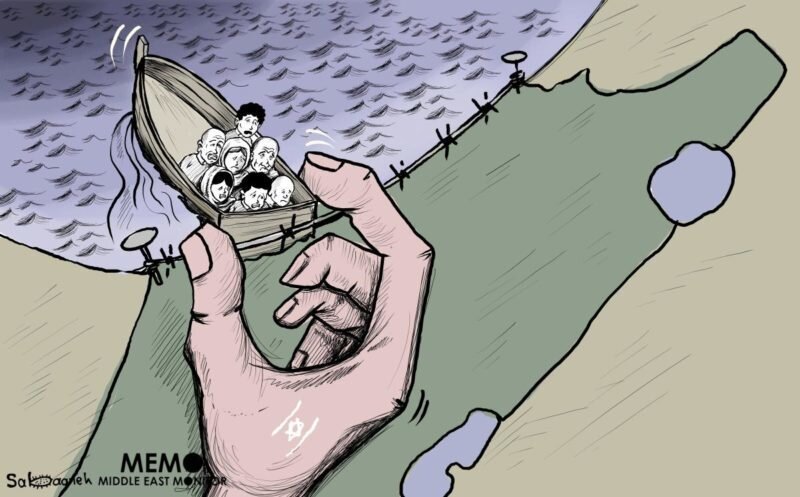Hawzah News Agency - (Occupied Palestine) - The Palestinian Centre for Human Rights (PCHR) strongly condemns the Israeli authorities’ decision to close the Gaza Strip’s sole commercial crossing “Karm Abu Salem” (Kerem Shalom) and warns of its catastrophic consequences on the lives of 2 million Palestinians suffering from serious deterioration of humanitarian and social conditions caused by 14 years of Israeli closure. PCHR affirms that this decision falls in line with previous measures that the Israeli authorities implemented against Gaza since 2007 in its overarching plan to strangle it.
According to PCHR’s follow-up, on Monday, 10 August 2020, Israeli authorities announced the closure of Karm Abu Salem crossing starting from Tuesday, 11 August 2020, except for the transportation of goods for vital humanitarian cases and fuel. According to Israeli Coordinator of Government Activities in the Occupied Palestinian Territories, the decision was taken “in response to the launch of incendiary balloons and breaching security calm.”
This decision falls under the framework of the complete, illegal and inhumane closure policy imposed by the Israeli authorities on the Gaza Strip since June 2007, as the Gaza Strip crossings have witnessed tightened restrictions on the movement of goods and persons.
Regarding commercial crossings, Israeli authorities continue to impose strict restrictions on the entry of goods classified as “dual use materials.” The Israeli authorities officially list 62 items as “dual use items” which contain hundreds of goods and basic materials. The items on the “dual-use goods” list are essential to the life of the population, so imposing restrictions on them contribute to the deterioration of infrastructure and the deterioration of economic, health and education conditions. Israeli authorities also continue to ban the export of Gaza Strip products, excluding limited quantities that do not surpass 5% of Gaza’s monthly exports before the closure in June 2007.
As to the crossing dedicated for movement of individuals, the extreme measures enforced by the Israeli authorities on the freedom of movement from and to the Gaza Strip via Beit Hanoun crossing are still in effect. Since early March 2020, restrictions imposed by the Israeli authorities and the Palestinian Authority continued for the purpose of combating the spread of coronavirus (COVID-19). These measures decreased and limited the number of persons and categories allowed to travel, as all categories were banned travel, except for limited humanitarian cases, and only patients are allowed to travel for treatment abroad.
PCHR is deeply concerned for the Israeli occupying authorities’ decisions to tighten the closure on the Gaza Strip and its catastrophic results on the economic and living conditions on the Gaza Strip population. PCHR considers this decision a form of collective punishment and an act of revenge against Palestinian civilians.
In light of the above, PCHR calls upon the International Community to:
* Immediately and urgently intervene to cancel this decision, open the only commercial crossing for the Gaza Strip, “Karm Abu Salem;” allow the entry of all the Gaza strip population’s needs, including basic goods and construction materials, and allow the export of the Gaza Strip goods freely.
* Force the Israeli authorities to abandon the policy of collective punishment imposed on the population of the Gaza Strip, including the closure of the crossings, which led to serious deterioration in civilians’ economic and social rights.
* Remind Israel of its obligations as an occupying power of the Gaza Strip to its population, in accordance with Article 55 of the Geneva Convention of 1949, which states: “The occupying Power shall, to the fullest extent of its means, provide the population with food and supplies and must take into account the needs of the civilian population”.
* The High Contracting Parties to the Fourth Geneva Convention must comply with their obligations under article 1 of the Convention to ensure the implementation of this Convention by the Occupying Power of Israel to the protection of Palestinian civilians.


Your Comment